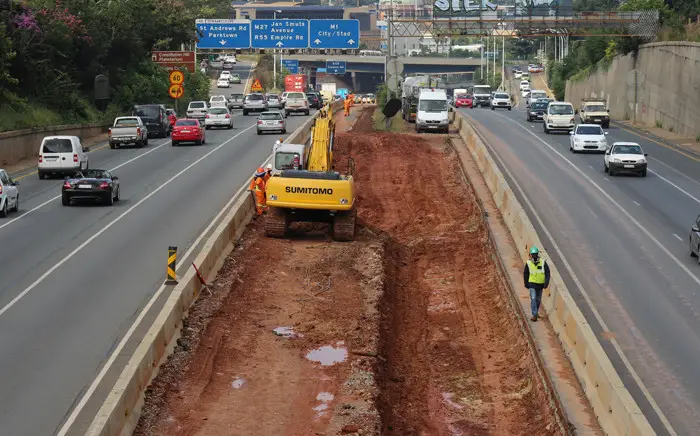A Gauteng road rehabilitation project including a 27-kilometre stretch of road – from the D483 / P6-1 crossing near Bapsfontein in Ekurhuleni to the D483/D713 crossroads in Cullinan in Tshwane, began last month. According to Marshall Muthen, director of engineering consultant WSP roads, transport planning, intelligent transportation systems, and rail, the project was awarded a construction contractor last month.
Also Read: R81 national road project in South Africa nears completion
This appointment was made after the project’s design, and procurement phases were delayed. The Gauteng road rehabilitation project’s building phase should take roughly ten months, with a target completion date of December of next year. He adds that 30% of the contract would be fulfilled by local small, medium-sized, and microenterprise (SMME) contractors, which will allow emerging and local companies to participate.
The project is for a section of Gauteng’s highway system. The Gauteng Provincial Road Authority has a pavement management and asset management system that identifies the road network’s repair needs at a strategic planning level. This portion of the road was designated as needing repair and upgrading in 2013. The Gauteng Provincial Road Authority then issued a tender for the project’s detailed design and construction supervision, and WSP was chosen to undertake the detailed design for the maintenance interventions in 2014.
The Project’s Design Process
WSP supported the province in appointing a contractor to construct the works as intended following a design process. WSP is responsible for monitoring the contractor to verify that construction follows the right design standards and that the Gauteng Provincial Road Authority and the contractor’s construction contract meets all legal and risk criteria. The project’s original concepts were finished in 2016. The Gauteng road rehabilitation project was put on hold following this period since the rehabilitation project had not been defined for the client’s expenditure budget.
The client set aside a budget for the project’s construction in 2019 and hoped to have it ready for construction procurement by the end of the year. WSP had to amend the design, taking into account the present condition of the road due to the delay after completion of the original design, seasonal cycles, and traffic on the road segment since 2016. Muthen further notes that legislative improvements in the public sector’s construction procurement environment have led to delays, with project delays of 12 to 18 months from bid close to appointment becoming commonplace.
Building site disturbances around the country, owing to labour disputes and local SMME participation in projects and the impact of the Covid-19 outbreak, have all led to delays in completing road construction projects. According to Mutten, these delays have reduced the average condition of the country’s road network due to postponed maintenance and improvements.

